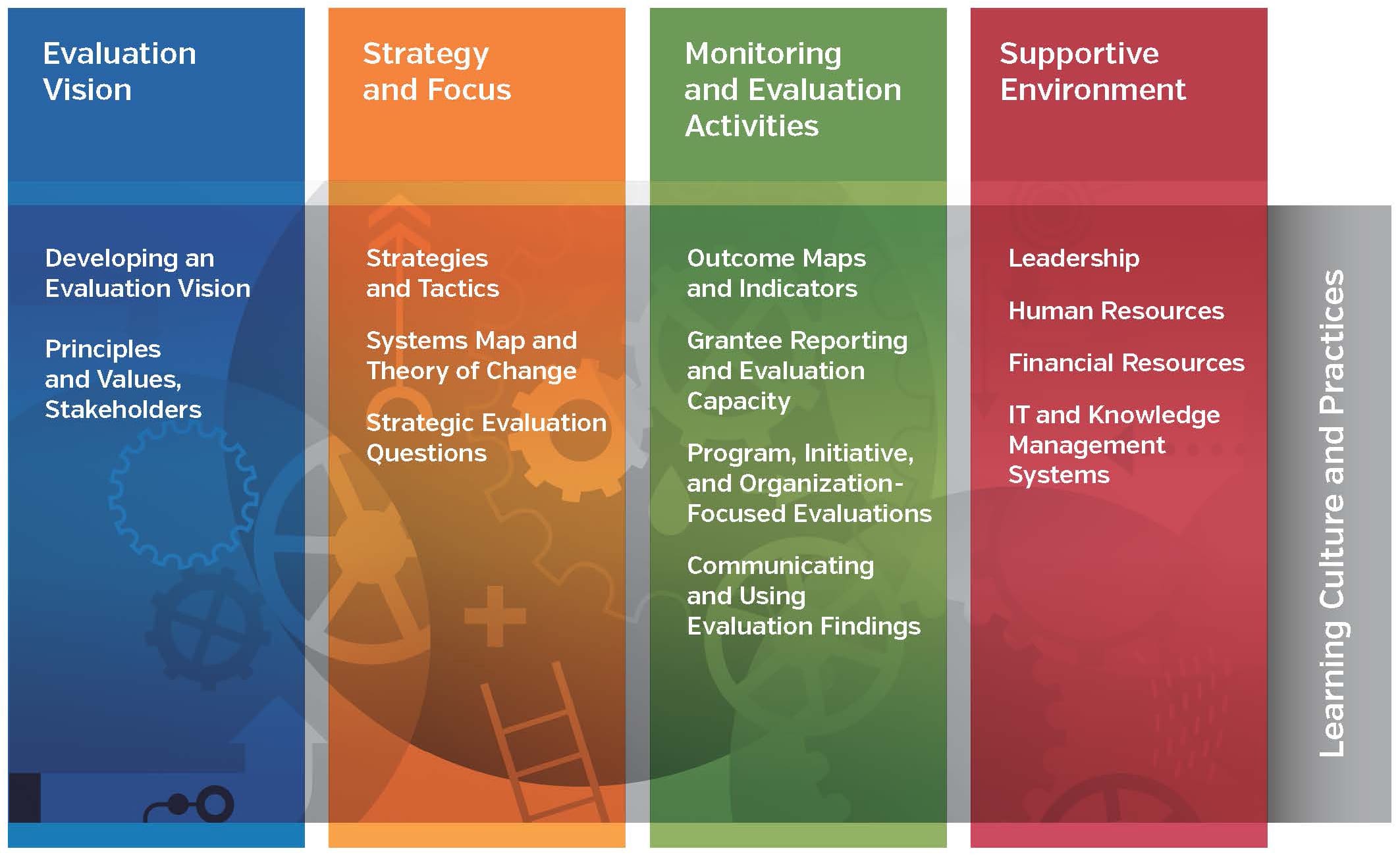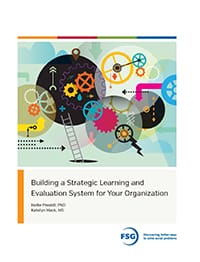The call for evaluation has grown louder in the field of philanthropy. There is a need for a deeper understanding of ongoing activities to inform strategic decisions about what to do next. But despite this growing need, current practices are often uncoordinated and unhelpful at an organizational level. How can organizations’ evaluation processes be more systematic, coordinated, and intentional, leading to greater understanding of their impact?
Top Takeaways
- A strategic approach to evaluation requires a clear vision for evaluation; a culture that fosters individual, group, and organizational learning; a compelling and cogent strategy; coordinated evaluation and learning activities; and a supportive environment.
- Good strategic learning and evaluation questions address process, impact, organization, and field-level outcomes. They guide the organization’s evaluation activities for the next 1 to 3 years.
- A major element is determining what to evaluate, when, and at what level, as well as how to communicate and use the evaluation findings for learning, adaptation, and change.


